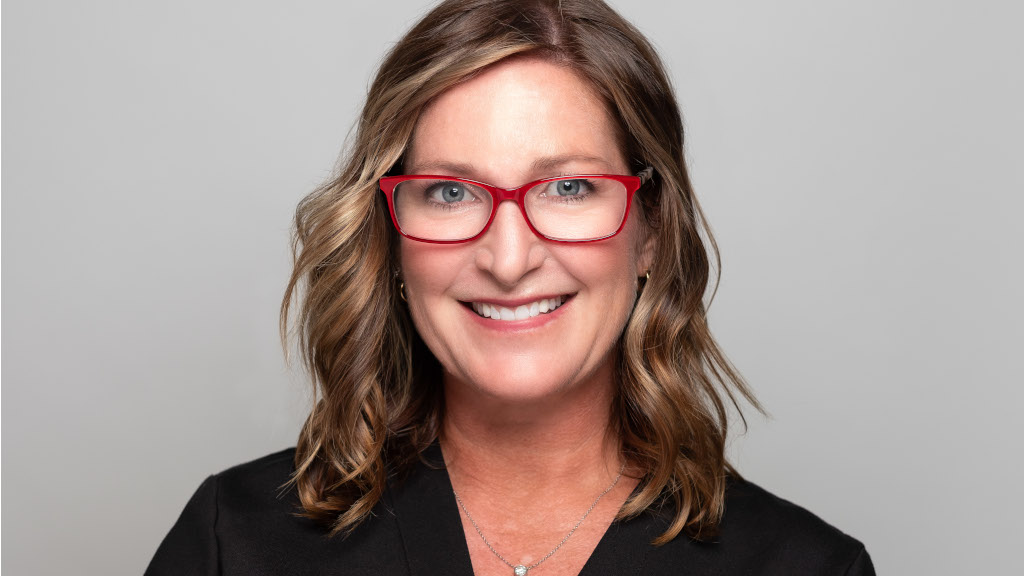Phillips sharpens advocacy for electrical manufacturers
CEO is helping the National Electrical Manufacturers Association zero in on 'mission-critical' priorities.
- June 10, 2022 |
-
 Kathryn Walson
Kathryn Walson


New on Board: NEMA CEO centers group around ‘mission-critical' issues
CEO Debra Phillips is helping the National Electrical Manufacturers Association find its focus. The trade group's biggest challenge: zeroing in on just a few of the "multitude of opportunities that the industry can go after," including electrification, digitization, automation and decarbonization, Phillips said. The $20 million-revenue trade group is based in Arlington, Va., and has about 70 full-time staff.
"It's a medium-sized trade association by D.C. standards, and there's only so much ground you can cover," Phillips said. "We needed focus. We can't go after every issue."
Since joining the association last fall, the first-time CEO has steered NEMA toward selecting a "handful of mission-critical issues, and then really focusing resources in those areas where we can add value for our members."
NEMA's members include roughly 325 electrical equipment and medical imaging manufacturers, including 24 that joined last year.
Phillips succeeded Kevin Cosgriff, a former vice admiral in the U.S. Navy, who retired at the end of 2021 after leading NEMA for seven years.
Learning from the best
Phillips was in her second year at the American Petroleum Institute when a recruiter contacted her about the role of NEMA CEO. At the time, she was senior vice president of Global Industry Services, API's for-profit arm. She was managing a $120 million budget and about 110 people at offices in Washington, D.C., Houston, Beijing, Dubai, Singapore and Rio de Janeiro.
"I had a big role there, and it was an exciting time in oil and gas. I felt like I was building a team and a portfolio," Phillips said. "I wasn't extremely familiar with NEMA at the time, but the more I started to understand the members and the industry and the intersection of the policy issues and societal trends, I got really excited about the role of a trade association and representing an industry in such a dynamic moment. So that was really what drew me to the opportunity."
Phillips said the NEMA role was a "very good match" and she felt "very confident" taking the helm. A large part of NEMA's work is in industry standards, and her portfolio at API included standards work.
After getting her bachelor's degree in biology and master's degree in ecotoxicology, Phillips spent the first five or six years of her career in manufacturing as a field engineer. She went on to spend the next 20 years or so "in and around trade associations," including more than 17 years at the American Chemistry Council, ultimately as vice president of sustainability and market outreach, followed by three years at API.
Phillips learned from "some of the best in the trade association field," having worked for current API CEO Mike Sommers and former ACC CEOs Cal Dooley and Jack Gerard. (Gerard left ACC in 2008 to become CEO of API but retired in 2018 before Phillips joined API.)
Setting priorities
Late last year, NEMA surveyed "D.C. policy elites" on legislative and regulatory priorities for their constituencies and where they would derive value from engaging with NEMA, Phillips said.
"It's a crowded space. There's a multitude of voices already engaging around policies and issues in those areas, and we wanted to gauge where a NEMA voice would add value. And we found that NEMA is very well known for its technical capabilities, its standards, its technical engagement, particularly around regulatory issues," she said.
Also late last year, Phillips' group surveyed leaders of member companies. The surveys helped NEMA determine that it needed to do more to shape public policy. The board landed on three top advocacy issues during its March meeting: energy transition, infrastructure and supply chain resiliency.
NEMA formed steering committees comprised of senior executives at member companies to develop advocacy campaigns in those three areas. She is meeting with steering committees through June and plans to discuss the three areas at the July board meeting.
"After that, it will be the hard launch of those three campaigns that we expect to be multi-year focus areas for NEMA," Phillips said.
As much as one-third of federal funding from the Infrastructure Investment and Jobs Act could flow into the electrical manufacturing industry, Phillips said.
Restructuring public affairs
To strengthen the group's voice, she restructured the government relations function, which was an "underdeveloped muscle" when she joined NEMA. She replaced two positions—vice president of government affairs and assistant vice president of communications—with one role overseeing government affairs and external communications. She hired Spencer Pederson from the Consumer Brands Association as vice president of public affairs.
In the roughly nine months since Phillips joined the trade group, NEMA has held 50 meetings in Capitol Hill offices "to reintroduce NEMA as a voice of influence in the public policy space," she said. The 30-member board and 10-member executive committee consist of "really strong industry leaders."
NEMA also needs to "continue to serve our members in the technical and standards space and do more with our deep bench in economics and market intelligence" to help members and policymakers address supply chain and workforce issues.
"We have a set of member companies that are doing groundbreaking, innovative work that has real implications to modern life, whether that's electric vehicles, or automated technologies or connected systems within your homes, whether that's lighting or automation within the manufacturing space to drive efficiencies and reduce carbon footprint."
It's "critical for NEMA to harness that innovation," Phillips said.
